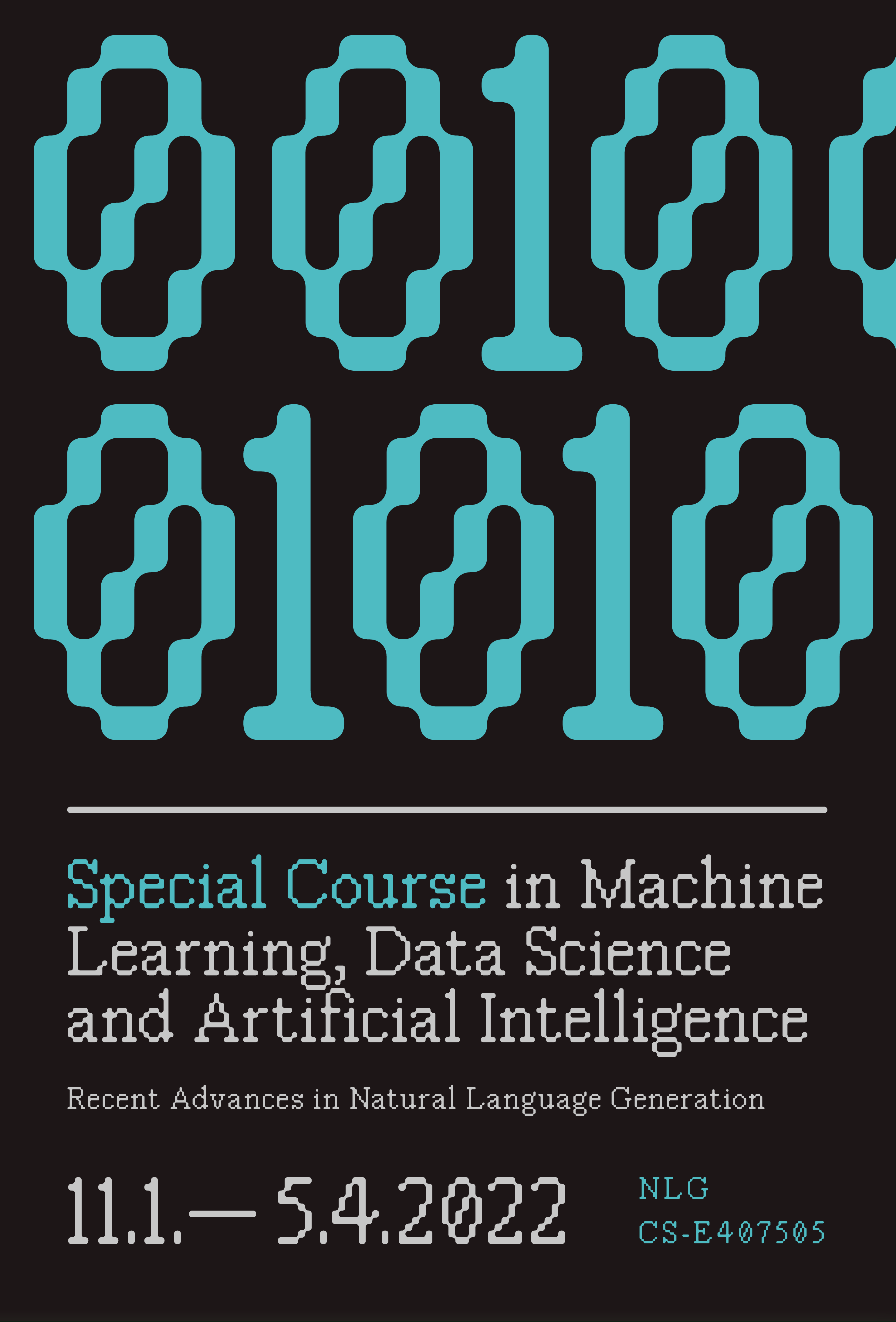CS-E407505 - Special Course in Machine Learning, Data Science and Artificial Intelligence D: Recent Advances in Natural Language Generation, Lectures, 11.1.2022-5.4.2022
This course space end date is set to 05.04.2022 Search Courses: CS-E407505
Topic outline
-
In the past few years, we’ve seen many significant advances in the field of natural language generation (NLG), from more realistic chatbots to automatic text summarization and AI-powered text adventure games. Among several contributing factors, these advances have been powered by large language models, such as GPT-3 and T5, as well as novel few-shot and zero-shot learning paradigms. In this course, we learn about the applications and methods for NLG models. We also discuss the challenges and solutions related to productionizing NLG models.
The course consists of:- Three introductory lectures held online, starting on January 11, 2022 at 10:15.
- Weekly online meetings where we discuss a total of 16 recent NLG papers (2 papers per session). Each paper is presented by one student, but active participation in the meetings is expected from all students.
- Project work where the goal is to generate a training set for an NLG task. The projects can be done in groups of 2-3 students.
Target audience: Doctoral students and advanced Master's students. Students should have taken at least one previous course on deep learning (e.g. CS-E4890) or have other previous experience with deep learning methods.
A maximum of 30 students are admitted to the course (first come, first served). Students who do not present a paper (in case more than 16 students join the course) will get 4 ECTS credits instead of 5 credits.Grading: 0-5. To pass the course, a student can miss at most 2 meetings. Grades will be determined based on small quizzes related to each paper prepared by the presenter (50% weight) and the project work (50% weight). Extra points may be awarded to students who have contributed particularly insightful questions/answers during the seminar sessions and for particularly well-prepared seminar presentations.
Lecturer: The course is taught by Dr Eric Malmi, who is a Senior Research Scientist at Google, Switzerland, working on Natural Language Generation. He got his D.Sc. (Tech.) from Aalto in 2018.
For more information see Course Practicalities.
Teaching Assistant: Katja Voskoboinik.
-
COURSE SLACK URLplease join our slack workspace!
here you can participate in discussions and ask questions
